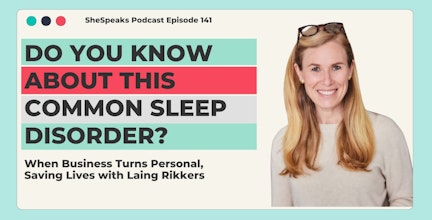The Secrets Behind the Ten Happiest Jobs

Now that I’ve graduated from college, non-specific degree in hand (what does one do with a BA in English?), the job hunt has begun. Looking around me, I see so many people who are unhappy with their jobs. Their days resemble a real-life version of Office Space, sans Jennifer Aniston; they sit in traffic, then they sit in a cubicle, then they sit in traffic again. If this is work, I want no part of it.
But there have to be some who really love their jobs, right? There must be those who don’t cringe when they hear the alarm go off on a Monday morning because they know they’re about to spend a week doing what fulfills them. I’ve heard of these people. I’ve never met any of them but, as with Santa Claus, I’m willing to believe they exist in order to preserve my optimism.
What Creates Job Happiness?
Everyone has a slightly different idea of what “success” is. Some won’t rest until they have several million in the bank, others prioritize family time, and still others crave public recognition for the jobs they do. Though we may think these things—money, fame, working from home, the office next to the coffee machine—will bring us happiness, they very often don’t. Actually, the ten happiest jobs in the United States, according to a 2008 study from the University of Chicago, “Job Satisfaction in the United States,” are all relatively low paying, with long hours and plenty of stress. And yet more than half of the people in these careers reported that they were “very happy” with their work.
Whistle While You Work
So what are the ten happiest jobs? The results of the study, according to payscale.com, are listed in order below, along with the median salary for each.
- Clergy, median salary of $44,102
- Firefighters, median salary of $45,553
- Travel agents, median hourly wage of $14.23
- Mechanics and repairmen, median hourly wage of $15.26
- Architects, median salary of $54,079
- Special Education teachers, median salaries of $41,344 for preschool through elementary teachers; $43,060 for high school teachers
- Actors and directors, salary varies greatly
- Scientific researchers, median salary of $72,435
- Industrial engineers, median salary of $61,729
- Airline pilots and navigators, median hourly wage of $63
For the most part, these are service jobs rather than professional jobs. Though some of them pay well, the jobs with the highest salaries are at the low end of the list. So what’s making these people so happy?
It could be the opportunity to interact with others on a daily basis. (IMing coworkers from across the sea of cubicles doesn’t count.) Most of today’s jobs have come to rely so heavily on computers and the Internet for communication, leaving workers feeling isolated, lonely, and stressed. People like the clergy, firefighters, and teachers, however, get to interact regularly with the public they serve and see the direct results of their efforts, adding to their job satisfaction.
The Secret to Job Happiness: Learn a Skill?
The message I got growing up was that the more education you have, the better chance you’ll have of being successful and happy with your job. But the rankings on this list belie that notion. Most of these jobs require specialized skill training rather than a generalized education.
Matthew B. Crawford, author of Shop Class as Soulcraft, has studied the loss of this kind of skill training in favor of liberal arts programs. Based on his experience as a motorcycle mechanic with a PhD in philosophy from the University of Chicago, Crawford reminds readers that so-called “trades” are invaluable both to society, for the goods and services they provide, and to the individual, for the sense of satisfaction one gets from working with one’s hands.
Deconstructing society’s prevailing bias against manual labor, Crawford questions the educational myth of separating thinking from doing, arguing that to do so degrades workers on both sides of the divide. The person who sits in a cubicle feeling impotent and isolated suffers just as much as the mechanic who is told that his is a lower kind of work.
Crawford’s argument makes sense, especially when you consider the types of jobs that are on the happiest list. They all allow for interpersonal relationships, require specialized skills that prohibit outsourcing and obsolescence, and create a sense of pride in the worker for a job well done. Without these key elements, American jobs are becoming both more tedious and more expendable, since workers with generalized education are easier to replace.
So What Did I Go to College For?
At this point, I’d really just like any job at all. And I know I’m not alone. Maybe it’s the unemployment talking, but I think that whatever job I do get will make me happy in some way, even if it’s just by allowing me to pay my bills. Every job has its pros and cons; that’s why we call it “work.” You just have to find what makes you happy about the work you do.
It’s important to remember that this survey is a broad one, based on gross numbers. There are plenty of people, I’m sure, who have jobs not on this list that they wouldn’t trade for anything. But it’s refreshing to remember that money and fame don’t equal happiness, nor does a degree from a prestigious university.
Make a Comment
 by
jandshyne | GILLETTE, WY
by
jandshyne | GILLETTE, WYI recently quit my job which I am SO hoping wasn't the biggest mistake ever, because I was in an office all by myself all day and HATED it. I am WAY too much of a people person to be in a job like that, so I can see why people would be happiest in jobs that allow them to interact with the general public. I am surprised at the Actors/Directors though. They work really LONG hours, are always under attack by the public, and often have to change their physical appearance dramatically in a short time which puts their health at risk (OK this one is just for actors) and they are constantly critiqued. I can't imagine wanting that life. To each their own though. :o)








_10242023164832.jpg?max-w=432&max-h=220&fit=crop&auto=format)

_08172023152001.jpg?max-w=432&max-h=220&fit=crop&auto=format)



 (3)_04112023125932.jpg?max-w=432&max-h=220&fit=crop&auto=format)


_01252024061712.jpg?max-w=432&max-h=220&fit=crop&auto=format)


 (6)_07082023175312.jpg?max-w=432&max-h=220&fit=crop&auto=format)
 (1)_05192023144508.jpg?max-w=432&max-h=220&fit=crop&auto=format)
 (37)_05032023114523.jpg?max-w=432&max-h=220&fit=crop&auto=format)
 (36)_04272023152113.jpg?max-w=432&max-h=220&fit=crop&auto=format)